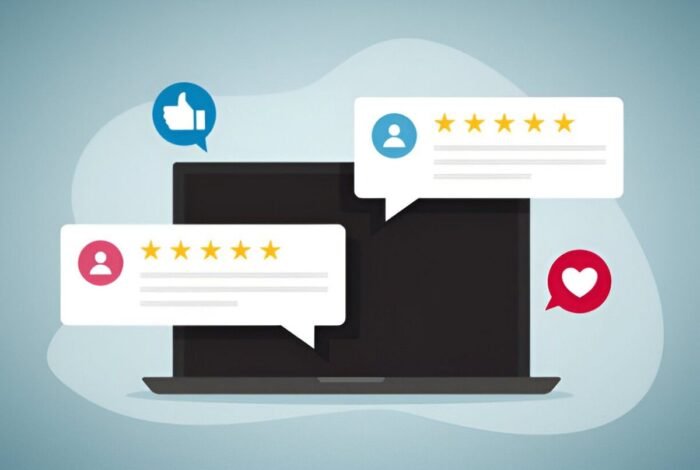In today’s digital world, maintaining a positive online reputation has become essential for businesses, professionals, and even individuals. Whether you’re an entrepreneur, a small business owner, or someone seeking career advancement, how you’re perceived online can significantly impact your success. The good news is that managing your online reputation isn’t as complex as it may seem. With the right tools, you can monitor your digital presence, address issues before they escalate, and build a strong, positive reputation over time.
In this article, I will explore some of the most effective tools available for monitoring and managing your online reputation. I’ll guide you through a selection of these tools, discussing their features, strengths, and how they can help you safeguard and enhance your online image.
Understanding Online Reputation Management
Before diving into the tools, let me clarify what online reputation management (ORM) entails. It involves monitoring your online presence and addressing negative content or feedback that could harm your reputation. ORM also includes promoting positive content, interacting with customers or audiences in a professional and respectful manner, and ensuring that the image you project online aligns with your personal or business goals.
In short, online reputation management is all about controlling the narrative in the digital space. With millions of people online every day, everything you do or say can be documented, shared, and reviewed. This gives rise to both opportunities and risks. A single negative review, for example, can easily spiral out of control if not handled correctly. But with proactive ORM strategies, you can stay in control.
Key Tools for Online Reputation Monitoring
Now that I’ve covered the basics, let’s take a look at some of the tools I believe are essential for anyone serious about monitoring and managing their online reputation. These tools offer a range of features, from tracking mentions of your name or brand to managing customer reviews. I’ll go over each tool in detail, providing a comparison where relevant to help you decide which might be best for you.
1. Google Alerts
Google Alerts is one of the simplest and most widely used tools for online reputation monitoring. It’s a free tool that tracks mentions of specific keywords across the web. This tool is great if you want to know when your name, brand, or business is mentioned online. Google Alerts allows you to set up alerts for news, blogs, forums, videos, and more.
Pros:
- Free to use
- Easy to set up
- Real-time alerts
- Customizable frequency
Cons:
- Limited features compared to paid tools
- Doesn’t track social media mentions
Despite its limitations, Google Alerts is a great starting point for anyone new to online reputation management. It’s quick and simple, allowing you to track mentions and stay informed of any developments. However, for more advanced monitoring, you might want to look at more comprehensive tools.
2. BrandYourself
BrandYourself is a reputation management tool designed for both individuals and businesses. It focuses on improving your online presence by helping you optimize your personal or business profiles. BrandYourself provides a free scan to assess your current reputation, giving you insights into what’s being said about you online.
Pros:
- Helps improve SEO for personal or business profiles
- Offers actionable suggestions to improve reputation
- Includes a reputation repair service
Cons:
- Premium features come with a cost
- Can be overwhelming for beginners
BrandYourself is especially useful for individuals looking to enhance their personal brand or remove negative content from search engine results. With its SEO tools, it helps you push down unwanted search results and improve visibility for more favorable content.
3. Hootsuite
Hootsuite is primarily known as a social media management tool, but it also offers features for monitoring your online reputation. With Hootsuite, you can track social media mentions, respond to customer inquiries, and manage your social media profiles from a single platform.
Pros:
- Supports multiple social media platforms (Twitter, Facebook, Instagram, LinkedIn)
- Allows scheduling posts and monitoring mentions
- Comprehensive analytics
Cons:
- Can be expensive for small businesses
- Some features are more focused on social media marketing than ORM
Hootsuite is an excellent tool for businesses that actively engage with customers on social media. It helps you stay on top of your social media reputation by tracking mentions and providing engagement metrics. However, it’s not as comprehensive for general online monitoring, so it’s better suited for those who focus heavily on social channels.
4. Reputation.com
Reputation.com is one of the leading reputation management platforms, offering a comprehensive suite of tools designed to monitor and improve your online reputation. It provides review management, social media monitoring, and customer feedback analysis.
Pros:
- Advanced monitoring tools for reviews and social media
- Provides analytics and sentiment analysis
- Helps with review generation
Cons:
- Expensive, with premium pricing
- More suitable for larger businesses
For businesses that rely heavily on customer feedback and online reviews, Reputation.com is one of the best tools available. Its review management features are particularly robust, helping businesses manage customer satisfaction across various platforms like Google, Yelp, and Facebook.
5. Mention
Mention is a powerful reputation management tool that allows you to track mentions across the web in real time. It can monitor websites, blogs, forums, and social media platforms. Mention also provides sentiment analysis, helping you assess whether the mentions are positive, negative, or neutral.
Pros:
- Real-time mention tracking
- Sentiment analysis
- Social media monitoring
Cons:
- Can be expensive for individuals
- Somewhat complex interface
Mention is ideal for businesses or individuals looking for an all-in-one solution to monitor their online mentions. It’s a great option if you’re trying to keep an eye on both your brand and competitors, as it offers comprehensive web and social media tracking.
6. Yext
Yext is a reputation management tool focused on managing online listings and reviews. It helps businesses ensure their information is accurate and consistent across a range of platforms, including search engines, review sites, and directories.
Pros:
- Helps maintain consistency across online listings
- Provides review monitoring and management
- Improves local SEO
Cons:
- More useful for businesses with a physical location
- Expensive for smaller businesses
For businesses with a local or physical presence, Yext is an essential tool. It ensures that your business information is consistent across the web, which can improve local SEO and customer trust. It’s a great choice if you want to enhance your visibility in local search results.
7. Trustpilot
Trustpilot is an online review platform where customers can rate and review your products or services. The platform is widely used by businesses to collect reviews and manage their online reputation.
Pros:
- Widely recognized and trusted by consumers
- Helps businesses generate reviews
- Easy to use interface
Cons:
- Reputation management features are limited
- Negative reviews can be difficult to address
Trustpilot is an excellent tool for businesses focused on gathering customer feedback. The ability to showcase reviews on your website can significantly enhance your credibility. However, the platform doesn’t provide the same level of comprehensive reputation management features as some other tools.
8. BuzzSumo
BuzzSumo is an excellent tool for monitoring online content and brand mentions. It helps you track what’s being said about you, your business, or your industry. BuzzSumo also allows you to identify influencers and track social media trends.
Pros:
- Tracks online mentions across blogs, websites, and social media
- Helps identify influencers in your industry
- Provides content analytics
Cons:
- More focused on content marketing than ORM
- Expensive for small businesses
BuzzSumo is particularly useful for businesses that want to monitor their content’s performance across the web. It’s also great for tracking industry trends and identifying key influencers who can help improve your online presence.
Comparison Table of Reputation Management Tools
| Tool | Best For | Pros | Cons | Price |
|---|---|---|---|---|
| Google Alerts | Beginners | Free, easy setup, real-time alerts | Limited features | Free |
| BrandYourself | Personal Branding | Improves SEO, actionable suggestions | Premium features are paid | Free + Paid |
| Hootsuite | Social Media Management | Multiple platforms, scheduling posts | Expensive for small businesses | Paid |
| Reputation.com | Businesses with reviews | Advanced review management, analytics | Expensive, more suited for large businesses | Paid |
| Mention | Real-Time Monitoring | Real-time tracking, sentiment analysis | Expensive, complex interface | Paid |
| Yext | Local Businesses | Consistency across listings, local SEO | Expensive for small businesses | Paid |
| Trustpilot | Customer Reviews | Trusted platform, easy to use | Limited ORM features | Free + Paid |
| BuzzSumo | Content Marketing | Tracks mentions, identifies influencers | More focused on content, expensive | Paid |
How to Choose the Right Tool for You
Choosing the right tool depends on your specific needs. If you are just starting and want a basic solution, Google Alerts is an excellent starting point. It’s free and easy to use, but it lacks the depth and functionality of more advanced tools.
For those looking to improve their online presence through SEO and review management, BrandYourself and Reputation.com are solid choices. These tools help push down negative content and promote positive results. If you need more advanced social media monitoring and engagement, Hootsuite is a great fit. However, it is best suited for those who actively manage multiple social media platforms.
If your focus is on managing customer reviews, tools like Trustpilot and Yext are valuable. Trustpilot allows you to gather reviews and improve credibility, while Yext ensures your business information is accurate and consistent across the web.
In conclusion, managing your online reputation is a continuous process, and the tools you use will depend on your goals, budget, and the level of monitoring required. By staying informed and proactive, you can protect and enhance your digital presence.





